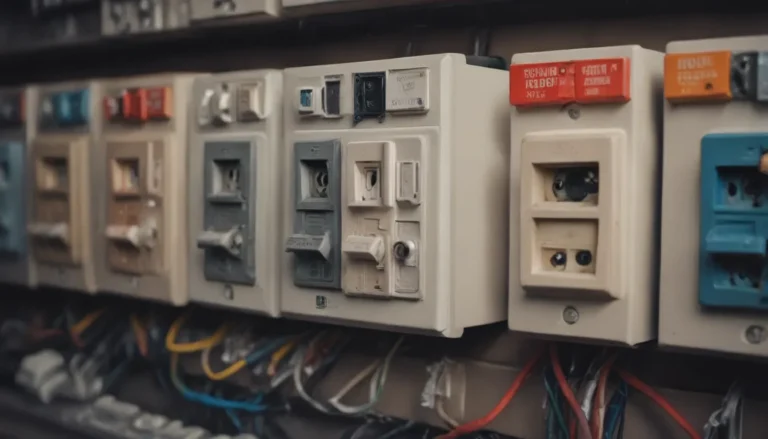A Comprehensive Guide to Romex Wire and NM Electrical Cable

When it comes to wiring a house, one of the most commonly used types of wire is NM wire or Romex wire. These wires are essential for powering residential electrical devices like GFCI outlets, lights, and wall outlets. In this comprehensive guide, we will dive deep into the world of NM wire and Romex wire, exploring their similarities, differences, uses, and more.
Understanding NM Wire vs. Metallic Sheathed Wire
NM wire, also known as Non-Metallic wire, is a type of electrical cable that consists of individual wires protected by plastic sheathing. On the other hand, metallic sheathed cable, commonly known as BX cable, has a metal sheathing that can act as a grounding source for devices. Understanding this key difference is crucial when selecting the right type of wire for your electrical needs.
Exploring Non-Metallic (NM) Electrical Cable
No matter which brand of NM cable you choose, there are typically three main components: outer cable sheathing, wire insulation, and individual wires or conductors. Let’s take a closer look at each component:
Cable Sheathing
The outer sheathing of NM electrical cable is made of a tough 30 mil-thick PVC jacket that protects the individual wire conductors. Depending on the gauge of the conductors, the outer jacket may be white, yellow, orange, or reddish. To make connections with devices, the cable sheathing can be easily ripped with a cable ripper and trimmed with a utility knife or scissors.
Wire Insulation
The individual wires within the sheathing are insulated with color-coded PVC material. Typically, you will find black, white, and red insulation for the conductors, along with a bare copper grounding wire. Some NM cables may have a paper separator between the wires, which can be removed during installation.
Wires (Conductors)
The electrical wires within NM cable are made of soft, uncoated copper. It’s important to note that only pure copper wires are allowed for residential wiring, as aluminum wires are no longer considered safe according to electrical codes.
NM Wire Gauges and Ratings
NM cable comes in various wire gauges, but most standard household circuits use 12-gauge or 14-gauge wire with two or three conductors, along with a bare copper ground wire. Here is a breakdown of amperage ratings for different wire gauges:
- 15 amps: ideal for standard household circuits
- 20 amps: suitable for heavier loads
- Over 30 amps: typically used for specialized applications
When connecting NM wire to devices, remember to strip the insulation from the individual copper wires using a manual wire stripper.
Romex and NM Cable: A Detailed Buying Guide
Romex wire is a popular brand of NM-sheathed cable in North America, known for its quality and reliability. While Romex wire features a unique SIMpull coating that reduces friction during installation, other brands also offer similar benefits. The key is to ensure that all NM wire brands meet electrical code requirements regarding wire gauges and materials.
The Origin of Romex Brand Wire
The name “Romex” originates from the Rome Cable Corp. of Rome, New York, a leading producer of electrical cables. Despite the company no longer being active, its contributions to the industry have left a lasting impact. Romex wire continues to be a trusted choice for residential wiring projects.
Pros and Cons of NM Wiring
Pros
- Can be installed in plastic boxes without grounding
- Lighter and easier to handle than metallic sheathed wiring
- Smooth sheathing for easy pulling through studs
- Simple to cut and rip for installation
- Requires lightweight plastic cable staples for attachment
Cons
- Not suitable for outdoor or exposed use
- Cannot be used in drop ceilings
- Sheathing can be pierced, compromising safety
- Conduit installations may be required for specific applications
Despite these limitations, NM wire remains a versatile and cost-effective option for DIY electricians tackling home wiring projects. Understanding the pros and cons of NM wiring can help you make informed decisions when selecting the right type of cable for your needs.
In conclusion, NM wire and Romex wire play a crucial role in residential electrical systems, providing a safe and reliable means of powering various devices. Whether you’re a seasoned electrician or a DIY enthusiast, having a good understanding of these wires can make your wiring projects smoother and more efficient. Remember to always follow electrical codes and safety guidelines when working with electrical wiring to ensure the safety of your home and loved ones. Happy wiring!





